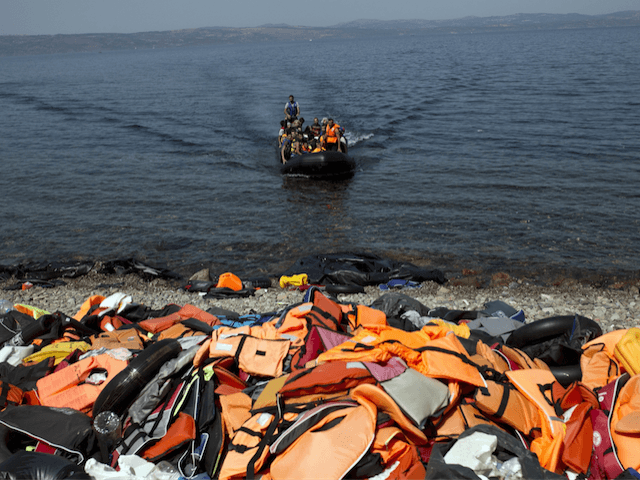Independent national measures to tackle the migrant crisis are counterproductive, German Chancellor Angela Merkel said Friday as she met with her French counterpart in Paris to push for a joint European solution to the problem.
Border slowdowns and closures along the migrant route through Europe have just meant that people are now piling up in Greece, overwhelming the country’s resources, Merkel said at a joint news conference with French President Francois Hollande in Paris.
The two leaders met ahead of a summit of EU and Turkish leaders to discuss the migrant crisis Monday. The Balkan countries and Austria have recently introduced tight restrictions to stem the flow of migrants. That has resulted in thousands of refugees and other migrants being stranded by Greece’s border with Macedonia.
“Unilateral solutions do not help us,” Merkel said, adding Europe needs to work closely with Turkey to stop the flow of migrants, and also to secure its outer borders.
Germany and France agree that the EU has to protect its external border to preserve freedom within Europe, get away from internal border controls and for security reasons, Merkel said.
Hollande said France will provide a ship to the NATO force deployed in the Aegean Sea — between Turkey and Greece — to help Europe’s external border control.
As temporary controls between several member states are reimposed to deal with the migrant crisis, some fear a full collapse of the borderless Schengen zone through most of the EU. The EU’s head office, the European Commission, has estimated that the cost of fully restoring border controls between EU member states would be as high as 18 billion euros ($20 billion) a year.
More than 1.2 million people applied for asylum for the first time in the EU last year, more than double the number in 2014. The EU’s statistics agency said Friday that most people applying in the 28 EU countries were Syrian, Iraqi or Afghan nationals. It said 362,800 Syrians applied for asylum.
The bloc on Friday kicked off the distribution of the promised 3 billion euros ($3.3 billion) in aid for refugees in Turkey, formally pledging 95 million euros for educational and food assistance.

COMMENTS
Please let us know if you're having issues with commenting.